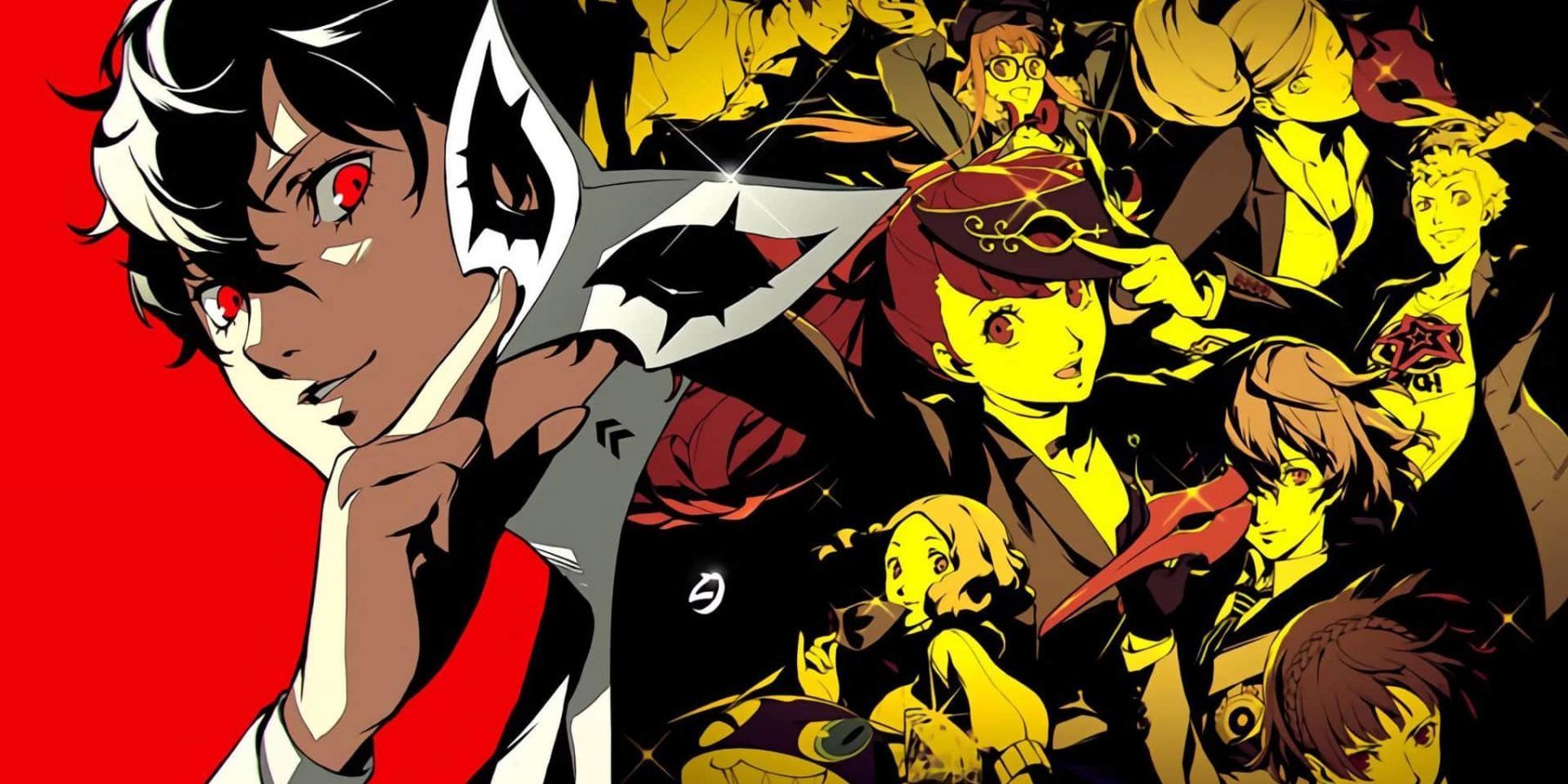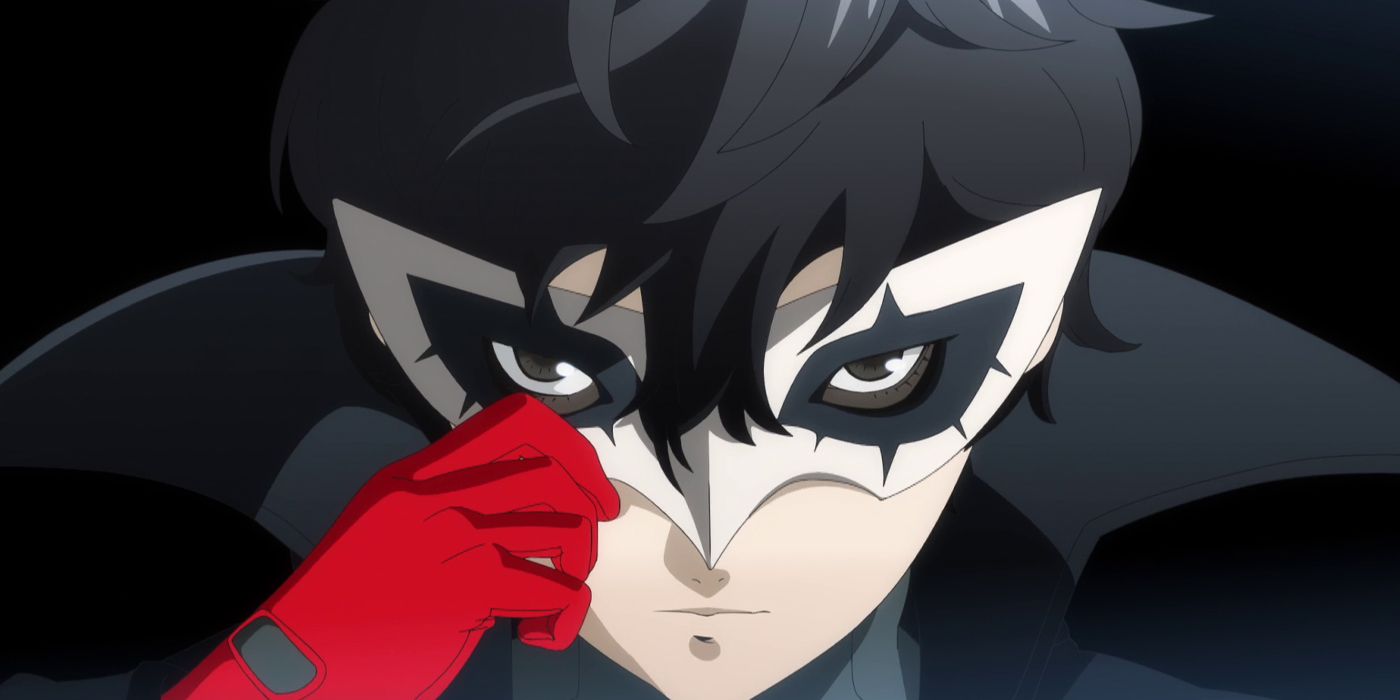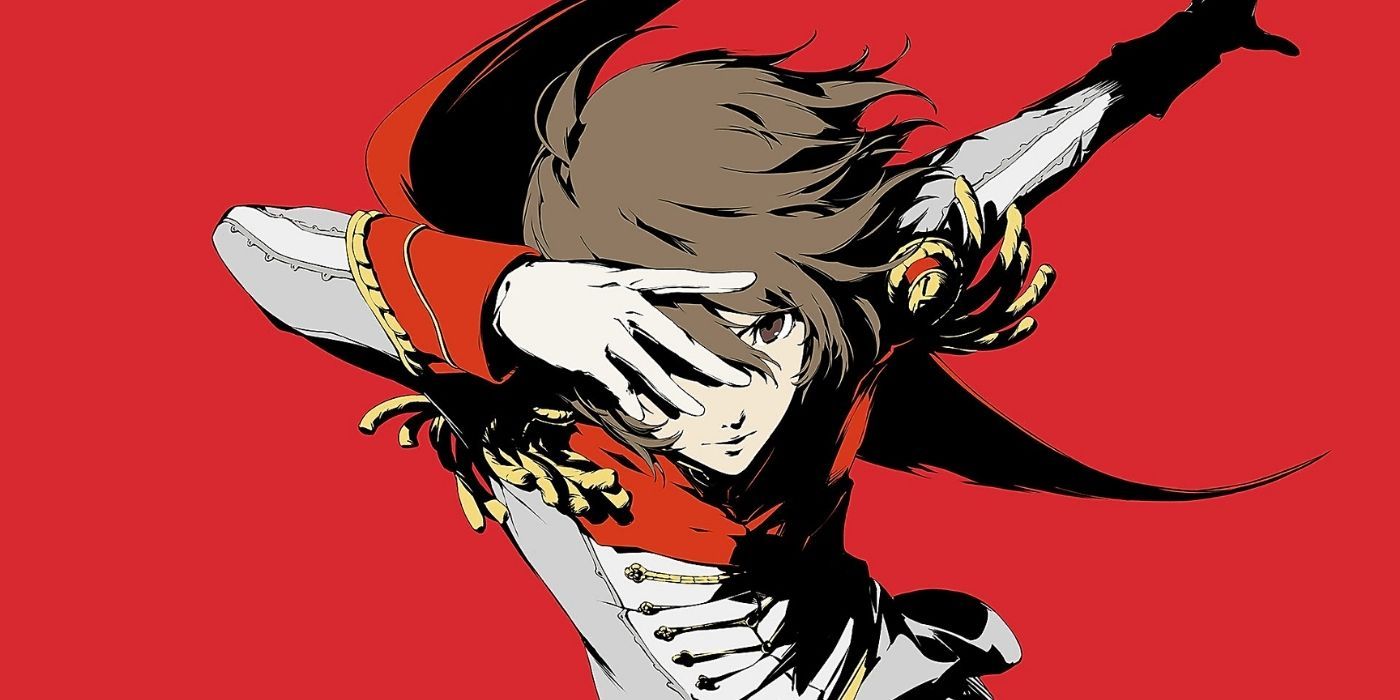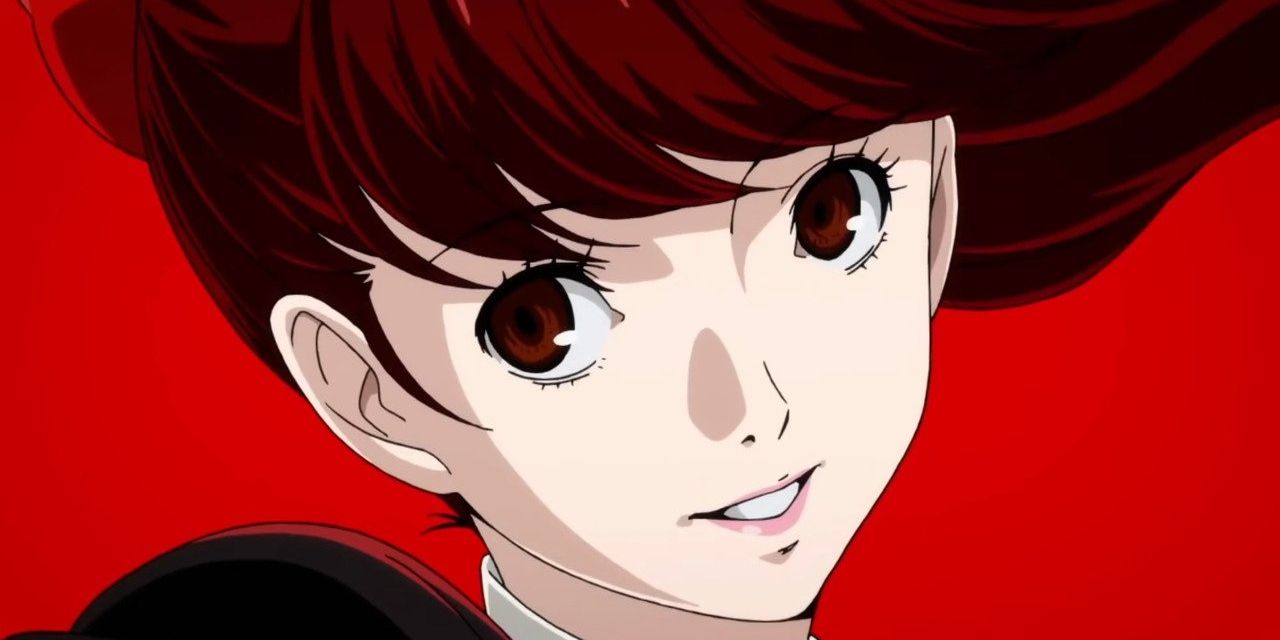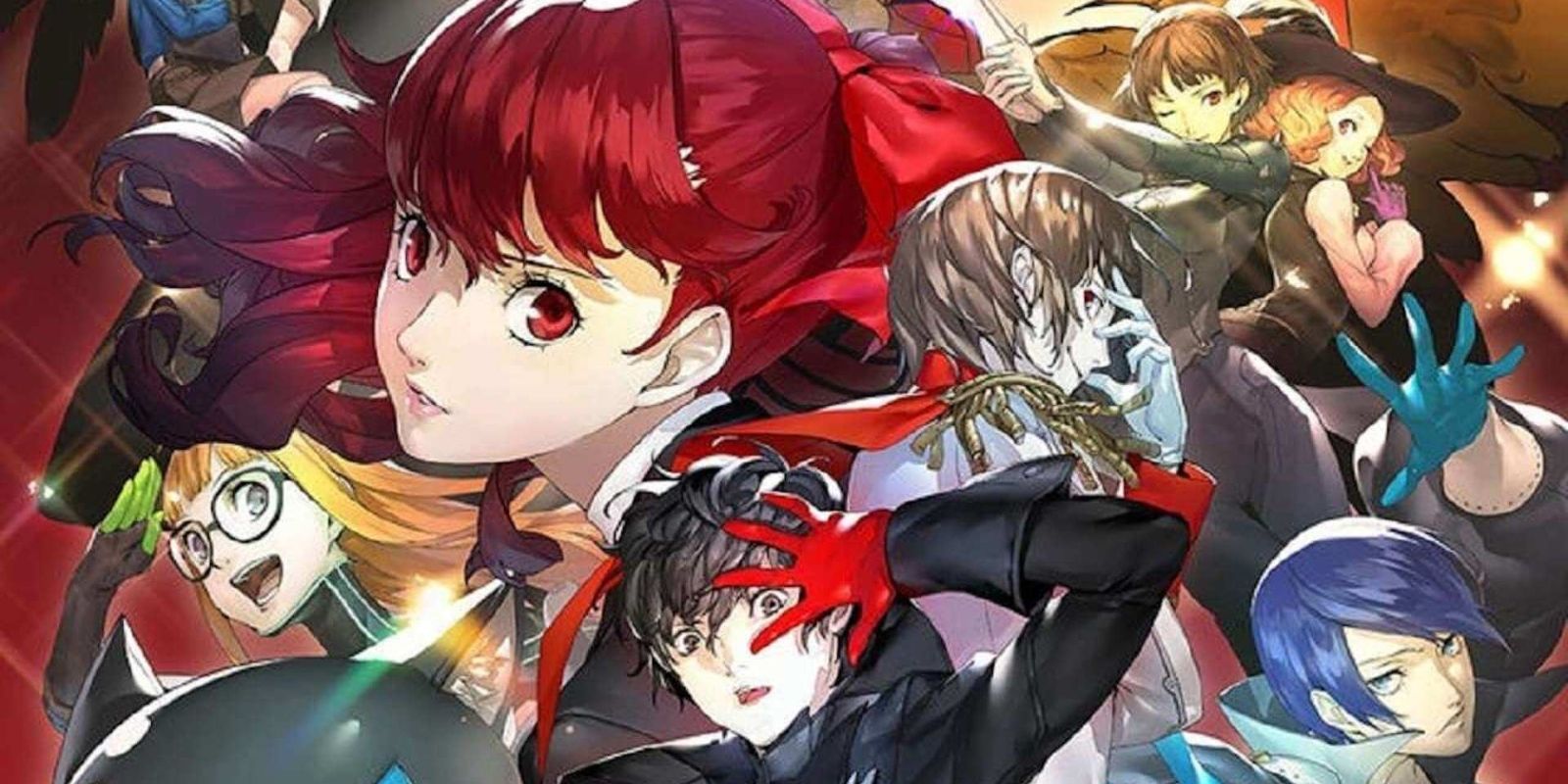WARNING: The following contains spoilers for Persona 5 Royal.
While Persona 5 was already known for having an incredible soundtrack, Royal took things even further. In addition to keeping much of the atmospheric background music and epic battle themes from the original, the enhanced version added several more songs. These include a new opening theme, end credits song and various tracks that fit the game's new characters and story content.
The game's soundtrack does more than simply give players something to listen to while they're exploring Tokyo, forming bonds with Confidants and fighting Shadows and corruption. P5R's music does a brilliant job of capturing the game's incredible story and providing insight into its characters. Here are the songs that do that most effectively.
"Beneath the Mask" Examines the Protagonist
"Beneath the Mask" is one song that players will hear a lot of throughout both P5 and P5R, and for good reason. Not only is the jazzy tune simply a lovely, gentle song that's easy to listen to, but it also serves as a theme for the protagonist. Persona 5's hero wears many physical and metaphorical masks over the course of the story, and while Joker (as his friends call him in the Metaverse) is a suave and fearless leader, the protagonist is ultimately a normal high school student forced into an extraordinary situation.
As in most JRPGs, Persona 5's protagonist is something of a blank slate. This allows players to identify with the character, but it also leaves him with few distinct traits. While his courage to stand up for others (even at great cost to himself) is a defining characteristic that sets his story into motion, his personality is shaped by the player's choices. But rather than leave that as a genre-related quirk, "Beneath the Mask" turns that into a part of the protagonist's character and his internal struggle.
The lines "I'm a shapeshifter/.../Hiding both face and mind/All free for you to draw" can be read as the protagonist changing himself as needed to deal with the situation at hands. In various instances, he is a high school student, the Phantom Thieves' leader, a Wild Card, a falsely-accused criminal, a part-time employee at various businesses, a shoulder to cry on and a fake boyfriend among many, many other roles -- which is easily enough to make anyone feel like "Just a cage of bones" with "nothing inside."
"No More What Ifs" Provides Insight into Akechi
Although he also played an important role in Persona 5, Royal gives the protagonist's rival Goro Akechi even more in terms of plot significance and character development. Akechi even gets a "Beneath the Mask" or his own with "No More What Ifs." While an instrumental version of the song is the default background music for the Thieves Den, it's the version with lyrics played at the jazz club that really examines the mind of the game's most complex character.
Unlike "Beneath the Mask," which confirms the protagonist's lack of a solid identity, "No More What Ifs" comes from the perspective of someone who is very aware of who they are and what they have done, best exemplified by the lines "I know I won't change anything/because I can only be me." Akechi knows that he cannot erase his actions, so even when the protagonist gives him opportunities to experience moments of normalcy, he still decides to continue with his revenge plan.
The lyrics have plenty of other symbolic references hidden within, including the line "if I am the fool or what not," which is likely a reference to the franchise's tarot motif. The Fool Arcana represents the start of a journey and infinite potential; when upright, it represents innocence and opportunity, but when reversed, it represents recklessness and disregard for consequences. Recent Persona games have used the card to represent the protagonist and their Wild Card abilities, and while Akechi represents the Justice Arcana within Joker's story, he perfectly fits the reversed Fool as protagonist of his own.
Also worth noting is the line "Someone once said 'burn my dread' babe," which is a clear reference to the opening song of Persona 3.
"I Believe" Celebrates All Things Persona 5
Though it only plays briefly on the final day of combat after the Phantom Thieves have sent a calling card to final boss Takuto Maruki, "I Believe" is memorable for how it gets the player ready to take on their final challenge -- and by far the game's most sympathetic antagonist. Royal's third semester (and its true ending) is all about accepting that you cannot change the past. However, "I Believe" places a more positive spin on this by reminding players that they have the ability (and responsibility) to shape the future.
"I Believe" captures the Phantom Thieves' faith in one another, which is particularly fitting as new character Sumire Yoshizawa represents the Faith Arcana. It also serves as a celebration of both games, with the melody sharing similarities to "Life Will Change" (the song that plays during the other Palace heists) and "Colors Flying High" (Royal's opening theme). Some of its lyrics also reinforce its role as a follow-up to "Life Will Change," namely "I thought that I told you I'm not a robot no/I thought I told you I'm not a phantom I'm in your face," which parallel its predecessor's opening lines.
"Bokura no Hikari" ("Our Light") Is Bittersweet -- Like the Game
While Persona 5 ends with the triumphant and celebratory "Hoshi To Bokura To" (which translates to "With the Stars and Us"), Royal's end credit theme is far more melancholic. Regardless of whether the player takes Maruki's deal or fights against him, Royal's ending is bittersweet. Either the player and their friends receive their deepest desires -- albeit in a false reality without freedom -- or they all must carry on as they were without those they've lost, but with the ability to shape their own futures.
"Bokura no Hikari" (or "Our Light") plays if the protagonist defeats Maruki and restores reality, and it's heartbreaking enough without being able to understand Japanese. However, the lyrics convey both the tragedies at the heart of the third semester's stories and the resolve the main characters feel to move forward despite their losses. The song has three distinct sections that seem to come from the perspectives of Maruki, the protagonist and Sumire, three characters who suffer great losses and feel guilty for being unable to save the person in question.
By rejecting the false reality (or being defeated in Maruki's case), all three accept that they must continue living no matter how much it hurts to do so. Confronting trauma and looking towards the future are a major themes of both the original Persona 5 and Royal, and "Bokura no Hikari" blends sadness and strength in a way that makes it a powerful, cathartic conclusion to this chapter of the Phantom Thieves' story.

